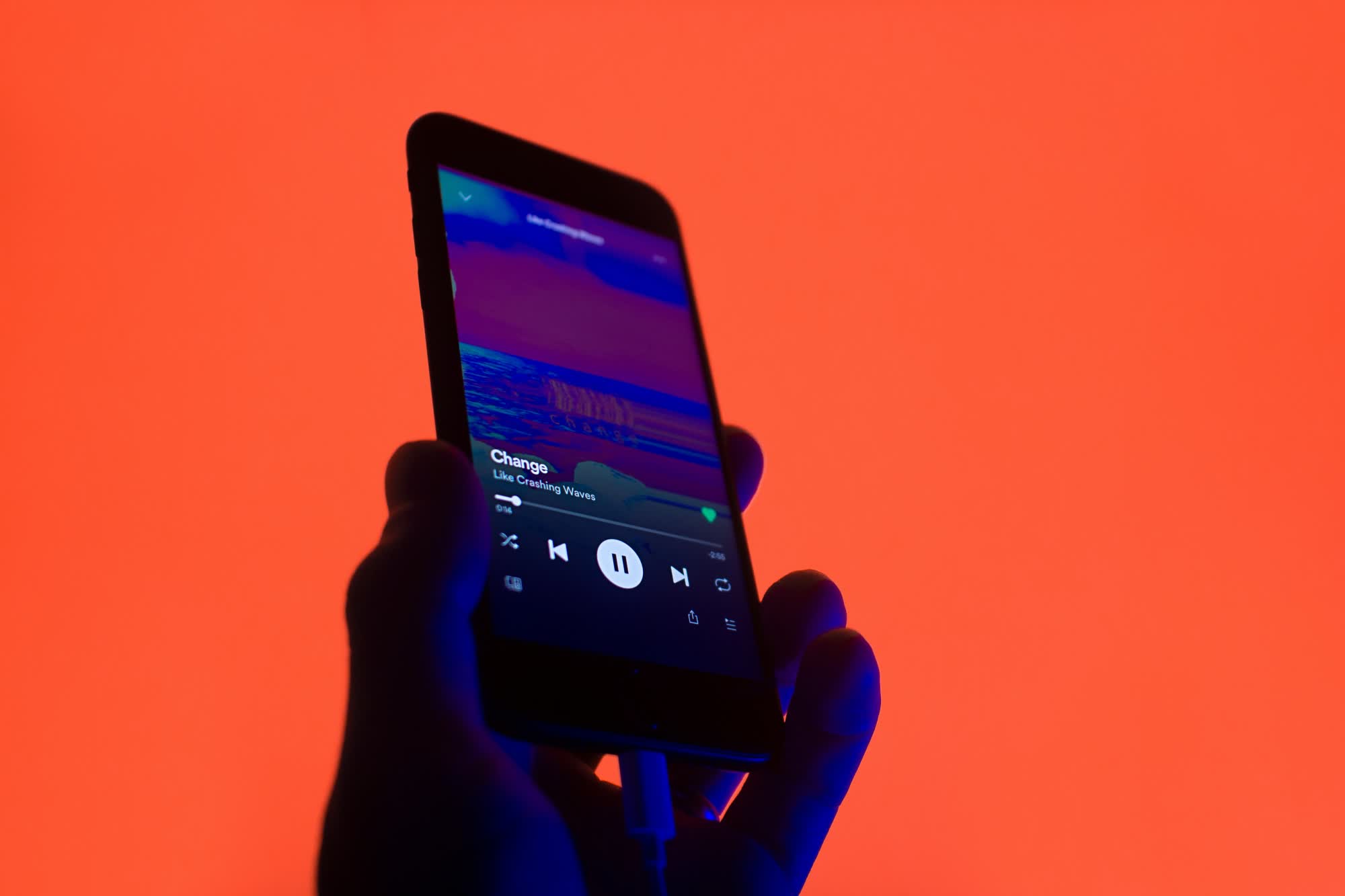Why it matters: Spotify is reportedly preparing to modify its royalty model in an effort to thwart streaming fraud. Sources told Music Business Worldwide that starting in the first quarter of 2024, the Swedish streaming giant will implement three major changes including introducing a minimum stream count before a track can start generating royalties.
The insiders didn't state exactly how many playbacks a track would need to hit to start generating revenue for the rights owner, but did say it is designed to demonetize songs that currently earn less than five cents in royalties per month.
MBW estimates that a track would need to generate 17 plays a month, or around 200 plays a year, to generate $0.05 each month.
"Spotify says tracks that [currently] represent 99.5% of 'Streamshare' will continue to monetize after these changes," one well-placed source told the publication.

Demonetizing extremely low-popularity, low-revenue-generating tracks – a few pennies here and there – might not sound like a big deal but collectively, it adds up to a significant sum of money. According to one source, Spotify believes the change could generate around $40 million next year – money that would go back into Spotify's Streamshare pot and be shared among tracks with higher popularity.
That's sure to tick off indie artists impacted by the change, and we'll just have to see how it all pans out and if there is significant pushback.
Spotify is also reportedly planning to financially penalize distributors – including labels – when it detects fraudulent activity associated with music on its platform. Such tactics could include using AI tools or human "stream farms" to boost stream counts, and would hopefully discourage distributors from continuing to work with bad actors.
Of course, nothing is ever so cut and dry. What would happen in the event of sabotage - intentional meddling from a rival record label, for example, to get a particular track banned?
Sources say the streaming giant also has a plan to target non-music "noise" tracks that have been essentially gaming the system with short tracks that are just enough to trigger a royalty. Currently, any song that plays for more than 30 seconds triggers a royalty.

White noise tracks have become increasing popular on Spotify. For example, a user could create a white noise playlist to help them sleep that consists of a single 31-second track on repeat. Each play triggers a royalty for the creator, just like any "legitimate" song would. A clever loophole, really.
Spotify is aiming to extend the length of time that non-music content must be played before triggering a payout. It is unclear what the extended unit of time would be but for the sake of argument, let's say it goes from 30 seconds to four minutes.
With the new guidelines, 31-second-long white noise tracks would need to be removed from Spotify, remade to be at least four minutes long, and reuploaded in order to continue to be monetized. Royalties would also drop significantly as a track would only generate a payout every four minutes versus every 30 seconds.
Image credit: Felipe, Chris Briggs, Nivenne Lanos
